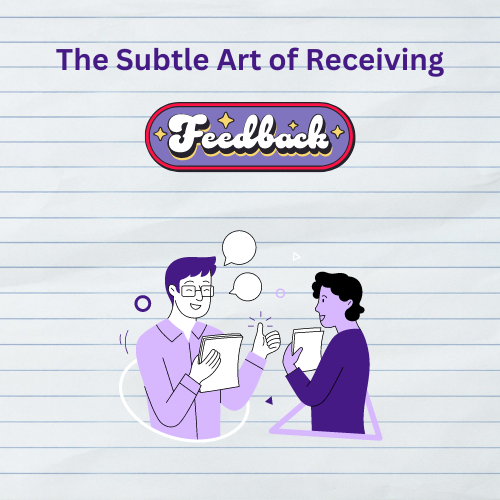The Subtle Art of Receiving Feedback
- Tim Hitpas
- Mar 28, 2024
- 3 min read
Updated: May 2, 2024

As writers, we tend to be a bit obsessive over our work. We cover our walls in notecarded story beats. We hop out of the shower to excitedly write down that one genius line of dialogue. We eagerly send our completed draft to our friends and submit it to contests, certain that this script is going to be “the one.”
And then the notes come in.
Short notes. Long notes. Positive and negative notes.
Your script is brilliant! | Your script is the worst piece of trash the reader has ever seen.
Your dialogue is hilarious! |You really need to do a dialogue polish.
As I’ve written before, giving thoughtful feedback is a skill. But so is receiving it. Being able to sift through the pile of other people’s opinions on your script and find the gold buried within can be a challenge. It’s one that I still struggle with.
Let’s say you prefer to get your notes in person rather than over email, and you invite your friend to meet up for coffee. Your chai latte hasn’t even cooled enough to drink yet, but your friend has already scorched your script from the title page to the “fade to black.” How do you respond? You can’t exactly tell them to screw themselves and flip the table over. That would be rude.
Most writers have some element of an ego attached to their work. It would be unrealistic to expect that a writer could accept every note they are given without becoming a little defensive about it. But herein lies the art of receiving notes. You have to look past the notes themselves and find the intention behind them. Here are a couple of common notes writers receive with my translation of what I think they really mean.
I didn’t care about this scene. It was boring.
Translation: This scene’s purpose in the story is unclear. It lacked sufficient tension or drama to keep my interest.
The dialogue needs work
Translation: The dialogue might be too expository, or it doesn’t sound like natural speech. Maybe the characters all talk in the same way, making it hard to differentiate them (If possible, I would push the note giver to clarify what specifically needs work).
I don’t understand why [Character] did XYZ
Translation: Your character’s goal is not clearly established, so it’s hard to follow the logic behind their actions.
The jokes aren’t funny
Translation: The jokes seem random and aren’t organic to the characters or situations (or the reader just doesn’t vibe with your sense of humor).
These are just a few examples. You’ll get all kinds of crazy notes. Some readers will pepper you with suggested changes to make your script more like something they would write. Some readers will hyper focus on one aspect of your story that they didn’t like and be super rude about it. Some will write a bunch of rambling paragraphs before getting to an actual, actionable note. This is my least favorite approach. I like people to get straight to the point. Just tell me how to make it better. It's like when you google a recipe and you have to scroll through ten pages of background on the author’s life before finally getting to the only thing you care about, which is the half paragraph of cooking instructions. I’m not interested in anything but improving the dish (in this case, my script). There’s only one thing that matters: How do I make this better?
Ultimately, It’s your job to interpret the notes you’re given and decide for yourself which you want to take and which you can ignore. Feedback is a gift, but only you know which notes will make your script better. Do whatever you need to in order to remove your ego from the equation and assess the feedback you’ve been given honestly. This component of self-assessment is tricky to get a handle on, but mastering it is essential to level up your game.
And finally, remember that 99% of people who are giving you notes are genuinely trying to help you get better. They’ve taken time out of their day to read your work, so the first step in receiving notes should always be to thank the reader for their time.



Comments